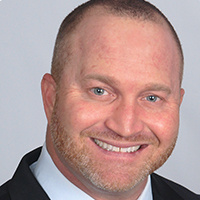Telogia White Collar Crime Lawyer, Florida
Sponsored Law Firm
-
 x
x

Click For More Info:
-
The Law Offices of Richard L. Cooper, P.A.
848 Brickell Avenue Suite 800 Miami, FL 33131» view mapDWI/DUI, Drug Trafficking, Felony Nationally Ranked Top 40 Under 40
With Richard L. Cooper you can expect a trusted confidant who will work diligently to fully understand your case and determine a road map to help you regain control of your life.
800-756-2781
Not enough matches for Telogia White Collar Crime lawyer.
Below are all Telogia Criminal lawyers.
Dean Robert LeBoeuf
✓ VERIFIEDDean R. LeBoeuf is the managing partner at Brooks, LeBoeuf, Foster, Gwartney, Leace & Hobbs, P.A. He focuses his practice on complicated civil litigat... (more)
Adrian Middleton
✓ VERIFIEDAdrian S. Middleton is an Associate in Middleton & Middleton’s Insurance and Administrative Law Divisions, where he focuses his practice on workers�... (more)
Christopher John Karpinski
✓ VERIFIEDChristopher practices law in Tallahassee and the surrounding areas.

 Richard L. Cooper Miami, FL
Richard L. Cooper Miami, FL AboutMiami Attorney at Law
AboutMiami Attorney at Law ServicesCriminal Defense
ServicesCriminal Defense



